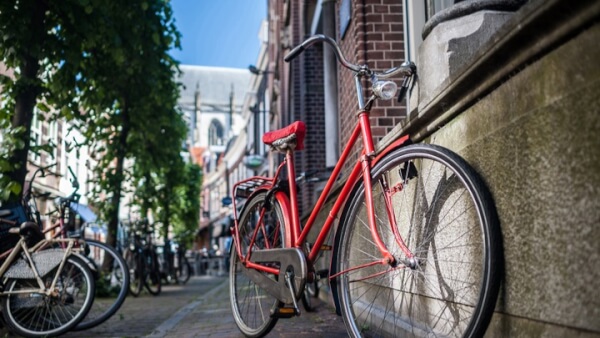Family reunification visa in Denmark: Requirements for Americans
Applying for the Family Reunification Visa Denmark? Learn all about the application process, costs, and processing times to reunite with loved ones.

Figures from the Danish Immigration Service show that more people than ever are moving to Denmark to live, study and work. They’re drawn by the stunning countryside, cuisine and the possibility of a great standard of living in cosmopolitan cities. Denmark scores highly in global quality of life ratings, making it no surprise that its popularity continues to grow.
If you’re planning on moving to Denmark to work or to set up your own business, then you might need to arrange yourself a work permit. Check out this simple guide to getting a Danish work visa.
Your first priority should be to figure out if you need a work permit at all. In some cases, depending on your nationality and the role you’re going to take on, a permit might not be necessary.
European Union (EU) citizens along with European Economic Area (EAA) and Swiss nationals are covered by EU legislation on free movement, and can live and work in Denmark without needing a special visa. Citizens of the Nordic countries are also given special privileges, which mean they don’t need a permit. In both cases, if you plan on being there for more than three months, you might be required to register your residence to stay legally in Denmark.
Full details of visa requirements for all EU countries are available from the EU immigration portal.
If you’re from outside the EU you’ll probably need a permit to live and work in Denmark. People working in certain role categories, such as artists and athletes, might be allowed to come to Denmark for a short time without needing a visa. If you’re visiting for business and aren’t employed by a Danish company, you may also find that there are visa exemptions for special groups.
Full details on getting a Denmark visa of any type can be found on the government backed and extremely helpful ‘New to Denmark’ website. There’s also plenty of information about settling in Denmark once your paperwork is in order.
If you’re from outside of the EU, you’ll need a residence and work permit. Denmark offers several different work permit options. If you’re coming to work in a role which is short of skilled staff, then you’ll find it easier to get a Danish work permit. The government publishes an evolving ‘Positive List’, which is their list of Denmark's work roles in shortage.
Alternatively, you might be offered a visa if you’re coming to work in a role which is paid significantly above the average wage, or for an employer who has been approved by the government as an international recruiter.
Denmark is not covered by the EU Blue Card network. Their own variant on the option, known as the Green Card, was repealed in 2016.
Your application can be processed by yourself or your employer, if you give power of attorney for them to do so. The first step in the permit application process requires you to register a case order ID and pay the admin charge.
Fees are payable for most work visas in Denmark. An overview of visa costs is available online, with most employment visas costing 3,440 Danish Krone (DKK). Certain categories such as working holiday visas are exempt from fees.
Your application can be made online or in person at your local Danish embassy. All applicants must give biometric data, including photographs and fingerprints. This is usually done at your local embassy before travelling to Denmark, although there are some variations on this process depending on where you are when you apply.
After making your application you can expect to wait between one and three months for your visa to arrive. The maximum permit processing time is listed by each application type.
The documents you need to provide to support your application will vary depending on the route you’re following. Your local embassy will confirm the requirements when you make an appointment to submit your application, or if you’re applying online you can find the full details on the application portal.
You’ll usually need to provide the following documents:
A completed application form
A valid passport with validity at least three months beyond the expiration of the visa
A recent passport photo
Proof of your financial situation
Evidence of your grounds for application, such as an employment contract or the business plan for your startup business
If you’re studying in Denmark under a student visa and taking a higher education course, you can work up to 15 hours a week in term time and full time during the summer break. If you’ve completed a Masters or PhD level course in Denmark, you can apply for a visa for two more years to establish yourself in Denmark and find a job. This is know as a residence permit under the Establishment card scheme, and you must submit your application online.
There are specific visas available for those coming to Denmark to work as an au pair. The terms are fairly strict and are detailed on the Immigration Authorities’ website. Similarly, under certain circumstances, you might be able to get a visa to cover your internship in Denmark.
Depending on your nationality and age, you could be eligible to apply for Denmark’s working holiday visa. This agreement is between Denmark and a few other countries and it allows each other's citizens to visit for a maximum of 12 months.
If you plan on opening your own business in Denmark you can get a visa under the Startup Visa scheme.
You’ll need a strong business plan which will be scrutinised by experts. Use our business plan template to include a business plan in your application. Your business plan should contribute to the economy and employment in Denmark. If your visa application is approved you’ll be granted a permit for up to two years, and you can bring certain family members into the country with you. Part of the application requires you to prove you can support your family and yourself during your first year in Denmark, while your business is still developing.
If you have a residence and work permit or are in Denmark to study, you can usually bring your family members with you. This covers minor children and your spouse or partner, and you’ll be asked to prove the family relationship. Sometimes it’s also possible to also bring children over the age of 18 or elderly parents, if they're dependant on you.
The Immigration Authorities' website provides the residence permits conditions for accompanying family members.
In most cases your family will then have the right to work in Denmark, although you’ll still be asked to prove you can support their financial needs.
Once you have your work permit, the Immigration Authorities will register your basic information based on your application. This means that if any details change, you need to inform them in order to update the records.
If you’re in Denmark on the grounds of your EU citizenship (and don’t need a specific work visa), you still need to register your stay if it exceeds three months. It’s also a legal requirement that you can prove your identity, so you’ll need to carry your passport or national ID card.
At some point you'll need to convert your money to or from Danish Krone. If you open a bank account in Denmark or know someone with one, consider using Wise to cut out international bank fees. There's a small transparent fee, and when your money is converted from one currency to another you’ll get the real exchange rate - the same one you can find on Google.
If you withdraw money from your foreign account using an ATM in Denmark, know that it'll be more favourable to agree to be charged in the local currency instead of your home currency.
Regardless of when you start your new job abroad, it should be fairly straightforward to get yourself a visa if you follow the right steps. The most important part is just to make sure to enjoy your new adventure.
*Please see terms of use and product availability for your region or visit Wise fees and pricing for the most up to date pricing and fee information.
This publication is provided for general information purposes and does not constitute legal, tax or other professional advice from Wise Payments Limited or its subsidiaries and its affiliates, and it is not intended as a substitute for obtaining advice from a financial advisor or any other professional.
We make no representations, warranties or guarantees, whether expressed or implied, that the content in the publication is accurate, complete or up to date.

Applying for the Family Reunification Visa Denmark? Learn all about the application process, costs, and processing times to reunite with loved ones.

Moving to Denmark? Discover essential insights in our blog. Navigate cost of living & all the essential info for a smooth transition.

Copenhagen is a world class city, with fantastic culture and a vibrant cosmopolitan outlook. The Danes are famed for having the best work life balance on the...

Between insanely beautiful nature and architecture, one of the highest happiness indexes in the world, incredible workers’ benefits and the unique (and cozy!)...

Greater Copenhagen covers the city of Copenhagen, and surrounding areas of Eastern Denmark and Southern Sweden. It aims to be the global leader in attracting...